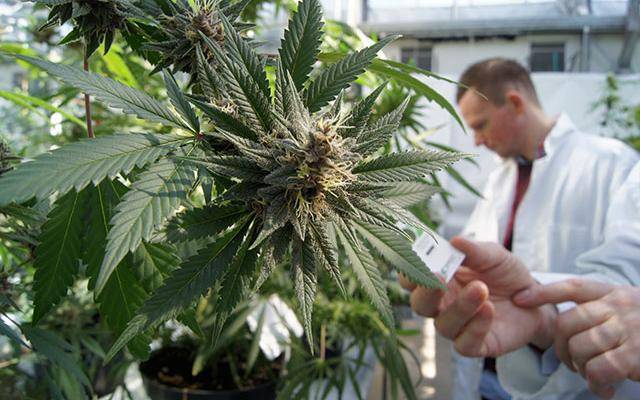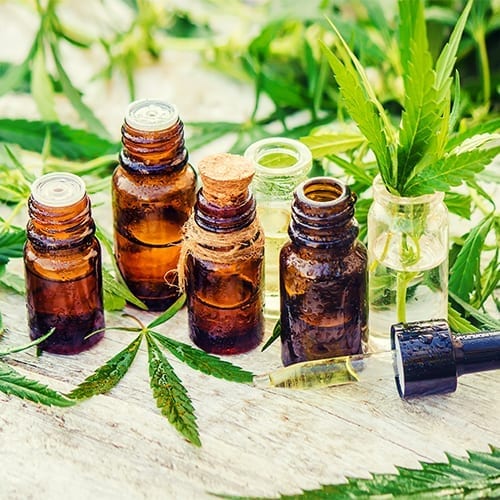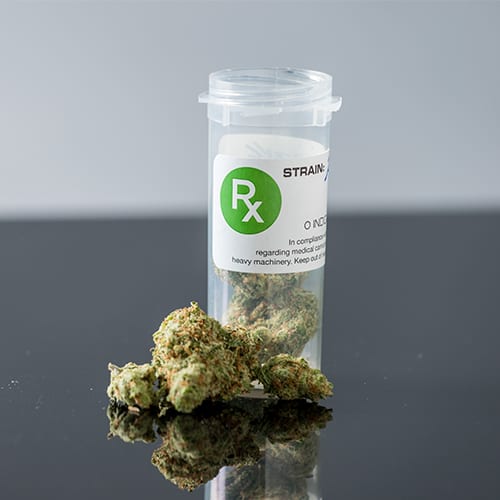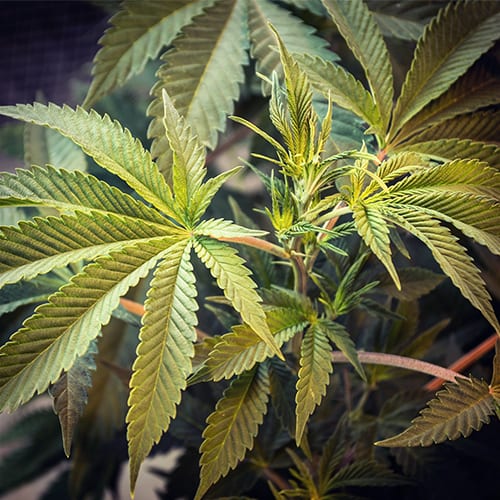
Cannabis can be used to treat a number of illnesses – cancer, osteoporosis, sleep apnea and depression just to name a few – but some doctors suggest that cannabis may be used in preventative care by supplementing the body’s own endocannabinoid production. Even diseases like PTSD can benefit from cannabinoid supplementation by promoting memory suppression and replacing endocannabinoids that have been lost due to trauma.
Because the body naturally produces cannabinoids (and because cannabinoid receptors are so prominent throughout the body), many scientists have therefore started to speculate that endocannabinoid production may play a vital role in a person’s overall health! Research in this area has consistently linked cannabinoid deficiencies with illnesses like migraines, fibromyalgia, Irritable Bowel Syndrome, Cystic Fibrosis or even Autism Spectrum Disorder.
Cannabis & The Endocannabinoid System
To fill you in, the endocannabinoid system consists of a series of receptors located throughout the body that are specially designed to fit various cannabinoids. Cannabinoids are chemicals produced by the body (endocannabinoids), derived from plants (phytocannabinoids) or produced synthetically that help mediate cellular communication. Some cannabinoids activate these receptors (agonists) while others block the receptors (antagonists).
A 2004 study published in the US National Library of Medicine discusses cannabis’s dopamine-blocking and anti-inflammatory properties and notes how anandamide, a naturally-occurring endocannabinoid, works actively in the grey matter of the brain where migraines often begin. The study also mentions cannabis’s incredible ability to block spinal, peripheral and gastrointestinal pain that is characteristic of disorders like migraine, fibromyalgia and IBS.
Authors concluded that “Migraine, fibromyalgia, IBS and related conditions display common clinical, biochemical and pathophysiological patterns that suggest an underlying clinical endocannabinoid deficiency that may be suitably treated with cannabinoid medicines.”
Results of this study were confirmed in a follow-up study conducted 10 years later. Authors note the need for more research to understand the correlation and between cannabinoid deficiency and treatment-resistant illnesses, and outline federal barriers and scientific biases that have slowed the process to understanding cannabinoid synergism within the body.
Cannabinoids May Help Prevent Age-Related Illnesses
If the body doesn’t produce enough endocannabinoids, free radicals (unstable molecules) will wreak havoc on the body. Fortunately, cannabis can help stabilize free radicals, thanks to its antioxidant and anti-inflammatory properties.
What are free radicals?
Free radicals are unstable molecules that bounce around in the body and atmosphere looking for atoms to stabilize themselves. They can be produced within the body during the metabolic process (eating or exercising, for example) or produced externally via things like sunlight, pollution or radioactivity. Over time, the presence of free radicals can cause cell damage as they rob near-by cells of electrons. Consuming antioxidants can stabilize free radicals by giving them the electrons they need to calm back down.
Stabilizing free radicals can reduce cellular damage and help stave off age-related health issues like cancer and cardiovascular disease. Cannabinoids can help stabilize free radicals by giving them extra electrons, as well. It is thought that endocannabinoids such as the ones produced in breast milk serve to protect our bodies from oxidative stress from the moment we are conceived.
Dr. Robert Melamede of the University of Colorado has theorized that “Free Radicals are the Friction of Life. Endocannabinoids are the Oil of Life”; they mediate pain perception, tame free radicals and stimulate appetite. In other words, cannabinoids (either internally- or externally-derived) are thought to promote homeostasis throughout the body of almost all animal species on the planet (except for insects). When there is a deficiency in endocannabinoid production, supplemental phytocannabinoids may help regulate many treatment-resistant, age-related illnesses.
In the near future, we will continue to find new applications for cannabinoid supplementation as the theory of endocannabinoid deficiency suggests. Only time will tell, at this point, but cannabinoid research looks promising, no less.
SOURCE: POTGUIDE.COM





